Doug Sampson


Our mission is to provide a safe and secure community in which the college may carry out its educational mission.
The Carl Sandburg College Department of Public Safety is located in Building D and Building B next to the bookstore. With the exception of the director and coordinator of public safety, public safety officers are not sworn Illinois police officers and, as a result, do not have arrest powers. The Carl Sandburg College Department of Public Safety staff frequently works with the Galesburg Police Department. The two agencies cooperate whenever possible on investigations and crime prevention programs to provide the best possible services to our campus and local communities.
Public Safety officers patrol the campus 24 hours a day, seven days a week. They respond to emergencies, call for service, walk through the campus buildings, provide escorts and staff special events.
The Clery Act requires colleges and universities to report on seven basic categories of crime. These are the same seven categories contained in the Federal Uniform Crime Report as compiled by the Federal Bureau of Investigation. These categories are as follows:
Additionally, the Clery Act requires colleges and universities to report on arrests and/or disciplinary referrals for the following: Liquor law violations, drug law violations and illegal weapons possession.
Also, Sandburg is required to report the following crimes:
The Clery Act also requires an accounting of hate crimes reported as happening on campus or public property abutting campus.
Institutional security policies and crime statistics
Security police PDF document
Clery Crime Reports Below:
2024 Crime Report covering 2023
2023 Crime Report covering 2022
The college has 26 emergency call boxes located across the campus. If you need assistance or have an emergency, you may reach security by pressing the button on any of the emergency call boxes located inside and outside our campus, and stating your location and the nature of the call. The dispatch/Public Safety operator will then dispatch a Carl Sandburg Public Safety officer to respond or contact the Galesburg Public safety dispatcher based on the nature of the call.
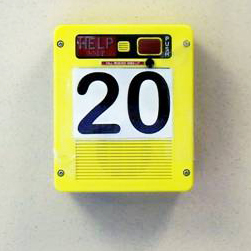
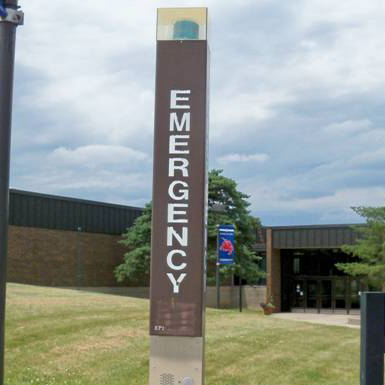
| EP number | Phone location |
| EP-1 | Outside the G building |
| EP-2 | Outside the childcare parking lot |
| EP-3 | Lower A building college prep. center back hallway |
| EP-4 | Upper A building classrooms by front doors |
| EP-5 | Outside the NE corner A bldg. by parking lot |
| EP-6 | Outside lakeside B bldg. |
| EP-7 | North corridor B bldg. |
| EP-8 | South lobby B bldg. by Cyber Café |
| EP-9 | Outside B SW A parking lot by bookstore |
| EP-10 | Outside West end of B parking lot |
| EP-11 | Outside middle of C parking lot |
| EP-12 | Outside Circle Dr. main entrance |
| EP-13 | Outside NW corner E/F parking lot |
| EP-14 | Main lobby F building/gym |
| EP-15 | Outside E & F connector |
| EP-16 | Across from Loft Café by west door to patio |
| EP-17 | D lobby by men's restroom |
| EP-18 | Lower C hallway |
| EP-19 | Elevator main lobby D bldg. |
| EP-20 | East C lobby at top of steps |
| EP-21 | On wall outside of personnel |
| EP-22 | H building inside hallway |
| EP-23 | AA building Allied center hallway |
| EP-24 | Rear E building hall elevator |
| EP-25 | Annex elevator |
| EP-26 | Baseball field main campus |
Carl Sandburg College is committed to providing a secure and welcoming campus environment for students, faculty, staff and visitors. The following information highlights measures in place at Carl Sandburg College to guard and protect the campus population as well as personal safety tips to help avert acts of violence.
All emergencies on campus are to be reported to Carl Sandburg College dispatcher by dialing 5499 from a campus phone or 309.341.5499 from a cell phone. Dialing 911 on a cell phone will connect to local emergency authorities, and may delay a response from campus security, local law enforcement and emergency response personnel. Be prepared to provide the following information:
When campus personnel witness behavior they believe may lead to a crime or violent situation, they should also report it to the Carl Sandburg College dispatcher by calling 5499. Such behavior may include the following:
Carl Sandburg College students have multiple avenues for seeking assistance including administration, faculty, staff or campus security. However, if a student is concerned about another student's pattern of behavior, they can report their concerns to the Behavioral Intervention Team (BIT), a team of administrative professionals tasked with evaluating and acting upon, as necessary, reported unhealthy or dangerous behavior exhibited by Carl Sandburg College students.
Such behaviors may include the following:
A Behavioral Intervention/Threat Assessment Team has been assembled and chartered to evaluate and act upon, as necessary, reported threatening and/or dangerous behaviors exhibited by Carl Sandburg College employees. Such behaviors may include the following:
Emergency: 5499 | 309.341.5499
Non-emergency: 5304 | 309.341.5304
Information: “0” from any campus extension
Doug Sampson, Chief Safety Officer:
309.341.5325
Galesburg Public Safety Building:
Emergency: 911
Non-emergency: 309.343.9151
Illinois State Police District 7 (Galesburg)
Non-emergency: 309.752.4915
Illinois State Police District 14 (Bushnell/Carthage)
Non-emergency: 309.833.4046
Carl Sandburg College is committed to a campus-wide approach to safety, security, and the well-being of our faculty, staff, students and the overall campus community. The college demonstrates this commitment through the implementation of various safety and security initiatives.
Although the vast majority of our students, faculty, staff and visitors do not experience crime at Carl Sandburg College, crime sometimes occurs despite our best efforts. The best protection against campus crime is an aware, informed and alert campus community that reports crime and suspicious behavior in a timely manner while using reason and caution during their daily activities.
As part of the overall effort to prevent crime, the college uses the following resources:
Policy from Illinois law
(110 ILCS 12/20 b1/2) Campus Security Enhancement Act of 2008
CVPP
Carl Sandburg College strives to provide a safe learning environment and a way of traveling on campus for persons who find themselves alone and do not feel comfortable traveling alone. It's a well-known fact that walking alone at night increases everyone's risk of being a victim of a crime.
The Carl Sandburg College Public Safety escort service was developed to provide a proactive measure to this situation. Public Safety Escorts can be reached by calling 309.341.5304.
The Illinois State Police maintain a database of all registered sex offenders in Illinois that you can access using the web. To learn the identity of registered sex offenders on or near campus, or anywhere in Illinois, visit the Sex Offender Database. Once there, you can search by city, county or ZIP code. Our Galesburg campus is in Knox County, the city of Galesburg and in ZIP code 61401. Our Carthage campus is in Hancock County, the city of Carthage and in ZIP code 62321. This information is provided per the Jeanne Clery Disclosure of Campus Security Policy and Campus Crime Statistics Act.
Carl Sandburg College takes the safety of our students seriously, and we provide services to help those who are struggling with alcohol and drug use. Sandburg offers free counseling services and educational resources to students who need assistance with making sound, well-informed choices when it comes to alcohol use as well as services to students who are struggling with addiction. Please contact the counseling staff in Galesburg at 309.341.5237 and in Carthage at 217.357.3129 to schedule a confidential appointment.
The illegal use or abuse of alcohol by students, visitors or employees is prohibited on Carl Sandburg College property or activities. Student, visitor or employee behavior that is disruptive or dangerous as a result of the consumption of alcohol will not be tolerated, and such behavior should be reported to the supervising vice president. The college administration strives to maintain a drug-free campus for all college employees and students. Educational programs are offered to ensure all college individuals are aware of the issues concerning the use and abuse of alcohol. This will include:
If a student or employee feels he/she has a problem with alcohol, the college will assist in a program that helps with this type of problem. Students with such a problem should notify the chief student services officer or a counselor. Employees should contact their immediate supervisor or Human Resources. Pending or subsequent to any legal penalties that could be imposed, the immediate supervisor or chief student services officer may require participation in a recognized alcohol rehabilitation program approved by the college. If the student/employee refuses, disciplinary action may be taken and could include:
Visitors using alcohol or who are intoxicated from alcohol will be prohibited from using college facilities. If the student or employee finds the disciplinary action unjustified, he/she may elect to file a complaint according to the existing complaint procedures in the college catalog or college policy manual. Faculty may elect to file a complaint according to the Grievance Procedure (Articles 7 & 11) of the Professional Negotiations Agreement. Each employee/student of the college will receive a written copy of the college policy statement and educational programs required by Drug-Free Schools and Communities Act Amendments of 1989 (Public Law 101-226) and the requirement that they abide by it. The college administration will review the Regulation on Alcohol biennially to determine its effectiveness and implement changes as needed and to ensure that rehabilitation or disciplinary actions are enforced.
It is the mission of Carl Sandburg College to provide an environment conducive to learning. The illegal use of controlled substances is harmful to the health of the individual and may hinder learning. Therefore, the illegal use of controlled substances, as well as their manufacture, distribution, dispensation or possession is prohibited on Carl Sandburg College property or as any part of college activities, events, classes, programs or services. The college administration strives to maintain a drug-free campus for all college employees and students. Educational programs are offered to ensure all college individuals have the opportunity to become aware of the issues regarding drug use/abuse, including:
Students/employees who feel they have a drug-abuse problem are encouraged to ask for assistance so as to be referred to an appropriate drug rehabilitation and treatment program. Students with such problems should notify the chief student services officer or a counselor. Employees should contact their immediate supervisor or Human Resources. Employee or student behavior that is inappropriate, disruptive and/or dangerous as a result of the use of illegal drugs will not be tolerated. Employees/students should report such behavior to the supervising vice president. Pending or subsequent to any legal penalties that may be imposed upon the student or employee, the supervising vice president may require the student or employee to participate satisfactorily in a recognized substance abuse program approved by the college. If the student/employee refuses, disciplinary actions may be taken and could include:
Visitors using, in possession of or under the influence of a controlled substance will be prohibited from using college facilities and/or reported to appropriate law enforcement agencies. If the student or employee finds the disciplinary action unjustified, he/she may elect to file a complaint according to the existing complaint procedures in the college catalog or college policy manual. Faculty may elect to file a complaint according to the Grievance Procedure (Articles 7 & 11) of the Professional Negotiations Agreement. It is further a policy of Carl Sandburg College, District 518, to provide a drug-free work place as defined by the Drug-Free Work Place Act of 1988 (DFWA). Employees are required by the DFWA to report any conviction for a drug-related crime occurring in the work place to their supervising vice president within five days of the date of the conviction. This law does not require reporting of alcohol-related convictions. The college will report that employee to the appropriate federal agencies within 10 days.
In accordance with applicable state and federal laws, rules and regulations, including the Drug-Free Schools and Communities Act Amendments of 1989 and EDGAR Part 86, the unlawful use, possession, manufacture, and/or distribution of alcohol, marijuana and/or any controlled substance while on college-owned or controlled property or at college-sponsored activities is prohibited. For the purposes of this policy, the term “controlled substance” shall refer to all illegal drugs and to legal drugs. The college has a substance abuse awareness program to inform students and employees about:
The college years are a very special time of life. For many students, it's a time of new freedom and choices. It's a time of new personal discovery, and the possibilities for the future are open and endless. Decisions are made daily that profoundly influence a student’s future (e.g, whether to go to class, whether to go to work, whether to study or whether to party). With each decision, consequences — either positive or negative result.
It's no secret that recreational drug use and social drinking are part of the college scene. Students are often faced with peer pressure to experiment with substances such as street drugs, non-prescribed pharmaceuticals, newly emerging synthetic substances and/or alcohol. Some students seem to participate in such activities with little to no apparent consequence. But this is deceptive. The physical and psychological effects of alcohol and drug use/abuse are many and varied. The effects are unpredictable and vary from person to person. Whether a person decides to use alcohol or drugs is a personal decision. But sadly, alcoholism and drug dependence, are not simply a matter of choice. In some respects, substance use is akin to playing Russian roulette. For some, it's a very slippery slope that can lead to full-blown addiction, legal problems, illness, disability or even death. For those with a family history of alcoholism or addiction, the chances of developing a problem increase dramatically.
The following list of potential health risks, although not exhaustive, assists students in making informed decisions about their bodies and health. Health consequences may be immediate or delayed, short-term or long-term. Alcohol and drugs, by design, produce physical and/or psychological change(s) and can interfere with the brain's ability to take in, sort and synthesize information. Simply stated, alcohol and drugs are toxins, and therefore toxic to the human body.
Academic risks
Mental health risks
May also cause:
Physical risks
Helpful informational resources:
Emerging trends with great health risk
Understanding use vs. addiction
Information summarized from the following sources:
http://www.american.edu/ocl/studentguide/upload/health-risks-associated-with-alcohol-and-drugs.pdf
Understanding why people use alcohol and drugs can help prevent abuse. Knowing the underlying reasons for use and the payoff involved can help people start to explore alternative ways to get their needs met. Many people are unaware of why they use it. Seeking the help of a professional is sometimes needed. Counselors, advisors, pastors, teachers, etc., can help people understand the payoff of substance use and assist in the exploration of alternative methods to get the same payoff. Although substance use is never encouraged, it should be noted that not all people who use substances will develop a problem.
Young people are most vulnerable to alcohol and drug abuse during times of transition. College is a huge transitional period when young people are confronted with many new emotional and social challenges. When asked why they use, young people most commonly respond that they want to change the way they feel, or to get high.
Other possible reasons include:
The National Council on Alcoholism and Drug Dependence, Inc. cite the following 10 tips:
Information summarized from the following resources:
https://addictionhappens.org/wp-content/uploads/2018/05/Ten-Tips-for-Prevention-for-Youth.pdf
https://emeraldcoastjourneypure.com/top-reasons-people-use-drugs/
Information and crisis hotlines
Abater Addiction and Mental Health Hotline - 24-hour crisis line for drug, alcohol and dual diagnosis. Crisis counseling and referral. 800.511.9225.
Addiction Recovery USA - Alcoholism information & treatment 888.821.5243
Recovery Referral Service - 888.887.5217
Drug Abuse & Addiction Centers - 888.279.6932
Support groups
Alateen - Support for children who have been affected by someone else’s drinking. Galesburg meetings for children ages 11 to 19 meet on Thursdays, 5 p.m. at Bridgeway. Meetings are available for Churchill and Lombard Jr. High School students at the schools during the academic year. Visit niafg.org or call 309.342.0146.
Alcoholics Anonymous - Usually one or more meetings daily in Galesburg, Monmouth, Knoxville, Oquawka and Abingdon. Times and locations vary; call 24-hour answering services at 309.343.1530 or 309.337.2711 for information or assistance.
Al-Anon Info Service - Support for family and friends of persons who have been affected by someone else’s drinking. For your local group times, visit: niafg.org; alanon.alateen.org, or call 309.342.0146.
Galesburg counselors specializing in addiction counseling
Bridgeway - Outpatient counseling. DUI evaluations and services, treatment services. 2323 Windish Dr., Galesburg. Call 309.344.2323, dial 0, and ask for Intake.
The Consultants - (James and Carolyn Sward) – Outpatient counseling for general addiction issues. DUI evaluations and classes. Email James or Carolyn, or call 309.343.2396.
Healthy Pathways Counseling - April Brobston, LPC (Supervised by Steven Foshay) Specializes in couple’s communication and addiction recovery. Reduced rates to cash clients: $45 individual and $50 for couples. Limited slots for truly needy clients at $25 per session. Bondi Building, 311 East Main Street #205, Galesburg. Email April, or visit aprilbrobston.com. Fax: 309.343.6005. Phone: 309.351.5255.
In-patient treatment programs
Illinois Institute for Addiction Recovery at Proctor Hospital - Inpatient and outpatient treatment for all types of addiction. addictionrecov.org. 800.522,3784
Narconon - Need help with addiction? Provides long-term in-patient care. Call 800.556.8885.
Robert Young Mental Health Center - Rock Island 309.779.3000
White Oaks Center - Peoria 309.671.8040 or 309.692.6900
Quad City area alcohol and drug resources
Center for Alcohol and Drug Services - Rock Island 309.788.4571 or East Moline 309.792.1125
Psychological Services, Inc - Moline 309.757.9000
Good Shepherd Foundation - Geneseo 309.944.6205 or 309.944.3258
Bridgeway, Inc - Kewanee 309.852.5541
Alcohol Education and Intervention Services (A.E.I. Services) - Moline 309.644.0224
River Bend Christian Counseling - Moline 309.757.0300
Tri-County Alcohol and Drug Services, LLC - East Moline 309.752.9740
Alcohol and Drug Education Clinic, Inc - Rock Island 309.794.1097
Family Counseling and Psychology Center, P.C., DUI Services - Rock Island 309.788.6374
Alcohol and Drug Educational Services - Rock Island 309.786.2992
Peoria area alcohol and drug resources
Drug Abuse & Addiction Centers - Peoria 309.713.3841
Illinois Alcohol and Drug Evaluation - Peoria 309.692.6277
Alcohol & Drug Evaluation Service - Peoria 309.692.9236
Teen Challenge Illinois - Peoria 309.673.3716
Chapin & Russell Associates - Peoria 309.279.5624
Alcohol & Drug Professionals - Pekin 309.346.2002
Peoria Alcohol & Drug Rehab - Pekin 309.270.1491
Alcohol & Drug Professionals - Canton 309.649.1002
DUI Countermeasures Inc - Peoria 309.676.7868
Tap Resources, Inc - Peoria 309.676.8762
Lisa M Birdoes - Peoria Heights 309.589.0910
Robert E Lewis - Peoria Heights 309.682.0566
Richardson Counseling Ctr - Bartonville 309.633.1030
DUI Countermeasures Inc - Pekin 888.212.3414
North Central Behavioral Health Systems - Canton 309.647.1881
Health Directions Mental Health Services - Canton 800.288.5912
White Oaks - Peoria 309.671.8040 or 309.692.6900
Human Service Center - Peoria 309.689.3051
Robert E Lewis Psychologist - Peoria 309.682.0566
Other resources
Rx dangers - Practical drug, device & healthcare safety information. rxdangers.com/
Alcohol Addiction Center - Resources for alcoholics and problem drinkers. alcoholaddictioncenter.org/alcoholism-resources
Carl Sandburg College has four 15-passenger shuttles and two seven-passenger minivans for reservation. These vehicles are used for athletic events, field trips, meetings, etc. A valid driver's license is required. Seat belts must be worn at all times. Cell phones must be used with a hands-free device. No texting or emailing with a cell phone is permitted while driving.
Vehicle reservations are made thru Astra scheduling. Vehicles are always reserved on a first-come, first-served basis. If there are any conflicts, the college reserves the right to decide which event comes first based on the needs of the college. If all vehicles are reserved, a rental car can be reserved by calling the administrative assistant in Business Services at 309.341.5235. A seven-day notice is required prior to renting a vehicle thru Enterprise.
After receiving confirmation from Astra, the keys and trip log may be picked up for the vehicle no earlier than eight hours prior to departure.
Please contact Public Safety upon your return to campus. The keys and trip log must be returned to Public Safety. Please check the vehicle for belongings, and ensure all trash is removed from the vehicle.
Never assume the vehicle is available for more than the time reserved. Reservations are often booked close together. If a problem arises, and you are unable to return by the time allotted, please contact Public Safety immediately so other arrangements may be made if needed.
In response to the enactment of the Illinois Smoke-Free Campus Act, the Carl Sandburg College Board of Trustees has amended Board Policy 2.16 Smoke-Free Campus. Carl Sandburg College is committed to creating a clean, safe and healthy learning and working environment for all students, faculty, staff and visitors. The success of this policy will depend upon the cooperation of all faculty, staff and students to comply with this policy and to encourage others to comply with the policy, to promote a clean, safe and healthy environment in which to work and study.
Board policy covers all campus facilities, grounds, college-owned or leased vehicles and vehicles on campus. This guideline shall apply to all persons, including students, faculty, staff, administrators, outside contractors, vendors and the general public, and is applicable 24 hours a day, seven days a week.
The Board of Trustees prohibits the use of tobacco anywhere on its campuses. This includes all campus facilities, grounds, college-owned or leased vehicles and vehicles on campus. This policy applies to all persons including faculty, staff, administrators, outside contractors, vendors and the general public.
Tobacco means any lighted or unlighted cigarette (clove, bidis, kreteks), cigars, cigarillos, pipes, hookah products and any other smoking product. This also includes smokeless, spit or spitless, dissolvable or inhaled tobacco products including but not limited to: Dip, chew, snuff or snus, in any form (orbs, sticks, pellet, etc.). This includes electronic cigarettes.
The president is authorized to develop procedures to implement this policy.
Inside the broken yellow line is considered Carl Sandburg College and must comply with the no-smoking policy.
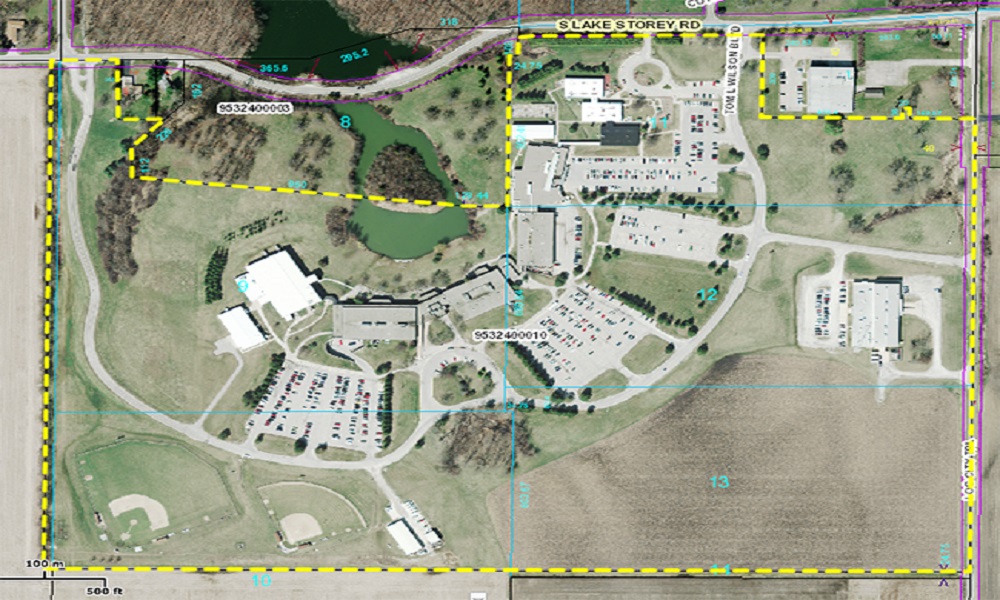
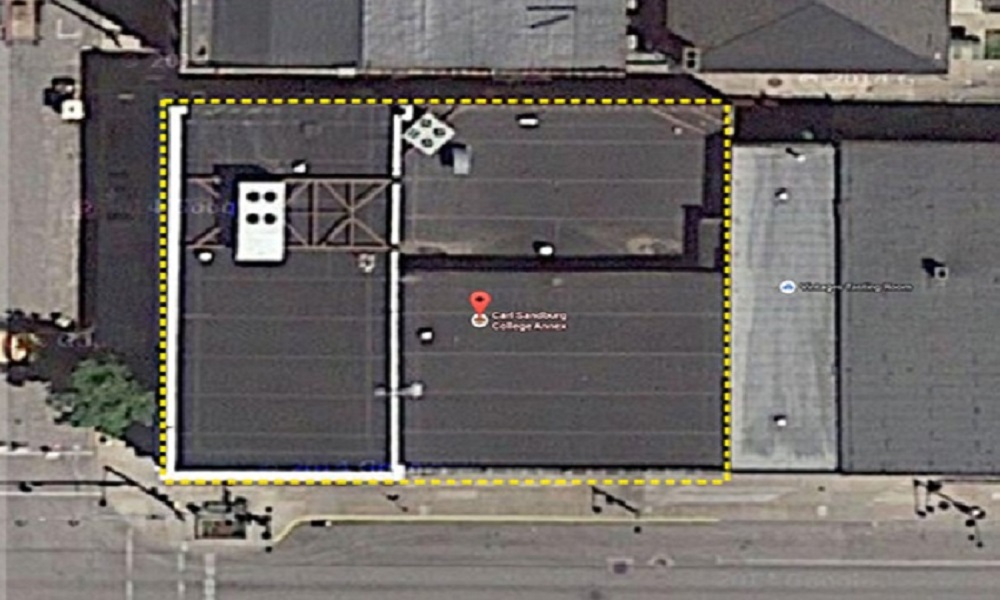
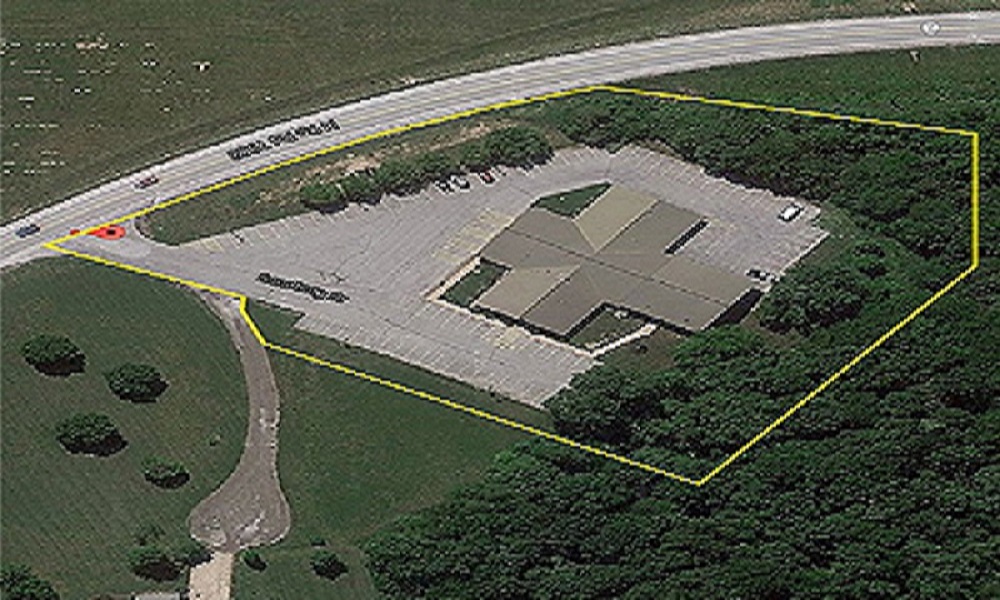
Resources to stop smoking
Research shows that many successful quitters develop a plan before they begin.
Here are some resources recommended by experts on smoking cessation: